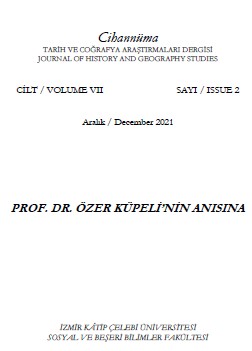TUZ, AŞİRET, DEVLET: SİİRT’TE TEKELİN OLUŞUMU, 1861-1881
SALT, TRIBE, AND STATE: THE MAKING OF A MONOPOLY IN SIIRT, 1861-1881
Author(s): Uğur BayraktarSubject(s): 19th Century, The Ottoman Empire, Socio-Economic Research
Published by: İzmir Kâtip Çelebi Üniversitesi, Sosyal ve Beşeri Bilimler Fakültesi
Keywords: Monopoly; salt; saline; tribe; Siirt; Diyarbekir; poverty;
Summary/Abstract: The present article is a study of Ottoman salt monopoly in the district of Siirt. It examines the establishment and evolution of the monopoly as a locus of the changing socioeconomic dynamics of the district. It offers a novel perspective to the literature on Ottoman monopolies, almost exclusively studied for the period following establishment of the Ottoman Public Debt Administration in 1881. Operated by the Kurdish emirs and tribes prior to the establishment of the monopoly, the salines in Siirt struck a severe blow to the Ottoman fisc during the takeover. By focusing particularly on the means the Ottoman monopolists developed for taking the salines in Siirt under control, it demonstrates the legal developments enforced for the improvement of the monopoly. It simultaneously explores the multifaceted relations the Ottoman monopoly officials established with the Kurdish emirs and tribal leaders. While highlighting the local solutions by which the both parties cooperated, it also deals with the economic consequence of fiscalising consumption. Salt smuggling due to increase in salt prices, this paper demonstrates, brought about an increasing degree of state violence in the district. The present study shows how the Ottoman salt monopoly in Siirt, driven with security and profitability concerns, rendered violence and poverty visible in the district.
Journal: Cihannüma: Tarih ve Coğrafya Araştırmaları Dergisi
- Issue Year: VII/2021
- Issue No: 2
- Page Range: 101-130
- Page Count: 30
- Language: Turkish

